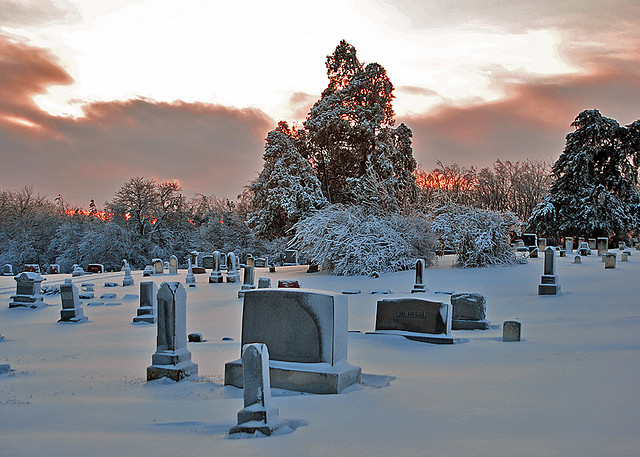Dead voters would be removed from voter rolls faster
By Jeremy Bauer-Wolf
Maryland’s voter registration rolls are bloated with names of dead people – an estimated 20,000 as revealed by a 2013 study from the state Republican party — and lawmakers are seeking a way to streamline the process of purging those names.
Currently, State Board of Elections officials must receive authentication of a death from the the Vital Statistics Administration, which is under the Department of Mental Health and Hygiene. Without that notification, they are not permitted to remove a name from the voter registration list without corroboration from the deceased’s family.
The House unanimously passed a bill last week from Del. Kathy Afzali R-Frederick County that would eliminate some of these tedious steps, she said. It passed with 135 votes.
HB 212 would allow the Board of Elections to use information transmitted from a Social Security Administration database as proof an individual had died, rather than wait for the family to verify, which can be awkward, Linda Lamone, state administrator for the Board of Elections, told lawmakers at the bill’s hearing in January.
“This enables [the Board of Elections] in keeping the voter rolls cleaner and allows them to get to other pressing issues,” Afzali said at the hearing.
Current process cumbersome
Under current law, an official must mail a letter to the dead person’s address and wait for confirmation — if the letter is not returned, the official may mail out another letter. If that second confirmation is not sent back, the Board of Elections must wait two election cycles before trying again.
Preserving a dead voter on the voter rolls can lead to fraud during elections. From 2004 to 2008, at least two dead voters cast their ballots, according to watchdog group Election Integrity Maryland. That led to the group filing a complaint with the Board of Elections.
Database could help elections officials purge dead names faster
The database known as the Electronic Registration Information Center (ERIC) contains information from seven states and the District of Columbia. Developed by IBM, the software is partially funded by those states and The Pew Charitable Trusts, and synthesizes data from the states’ voter registration rolls, as well as motor vehicle records, death records, and United States Postal Service address listings to ensure the information is error-free.
Baltimore County Democrat Del. Jon Cardin, a co-sponsor of the bill who chairs the election law subcommittee, expressed his worries at January’s hearing that the information from the Social Security Administration might not be accurate. Cardin cited a November 2013 Washington Post article that highlighted mistakes of SSA, including that SSA officials declare 750 living citizens dead every month.
Lamone said the bill contains a safeguard to prevent officials from relying solely on SSA and ERIC — should officials see an entry that lacks information, the Board of Elections would conduct its own research and investigation.
“The problem is we do not get notices of death from Vital Statistics if a Maryland resident goes to another state and dies,” Lamone said. “This would help get more of the residents who have died out of state.”

MarylandReporter.com is a daily news website produced by journalists committed to making state government as open, transparent, accountable and responsive as possible – in deed, not just in promise. We believe the people who pay for this government are entitled to have their money spent in an efficient and effective way, and that they are entitled to keep as much of their hard-earned dollars as they possibly can.

